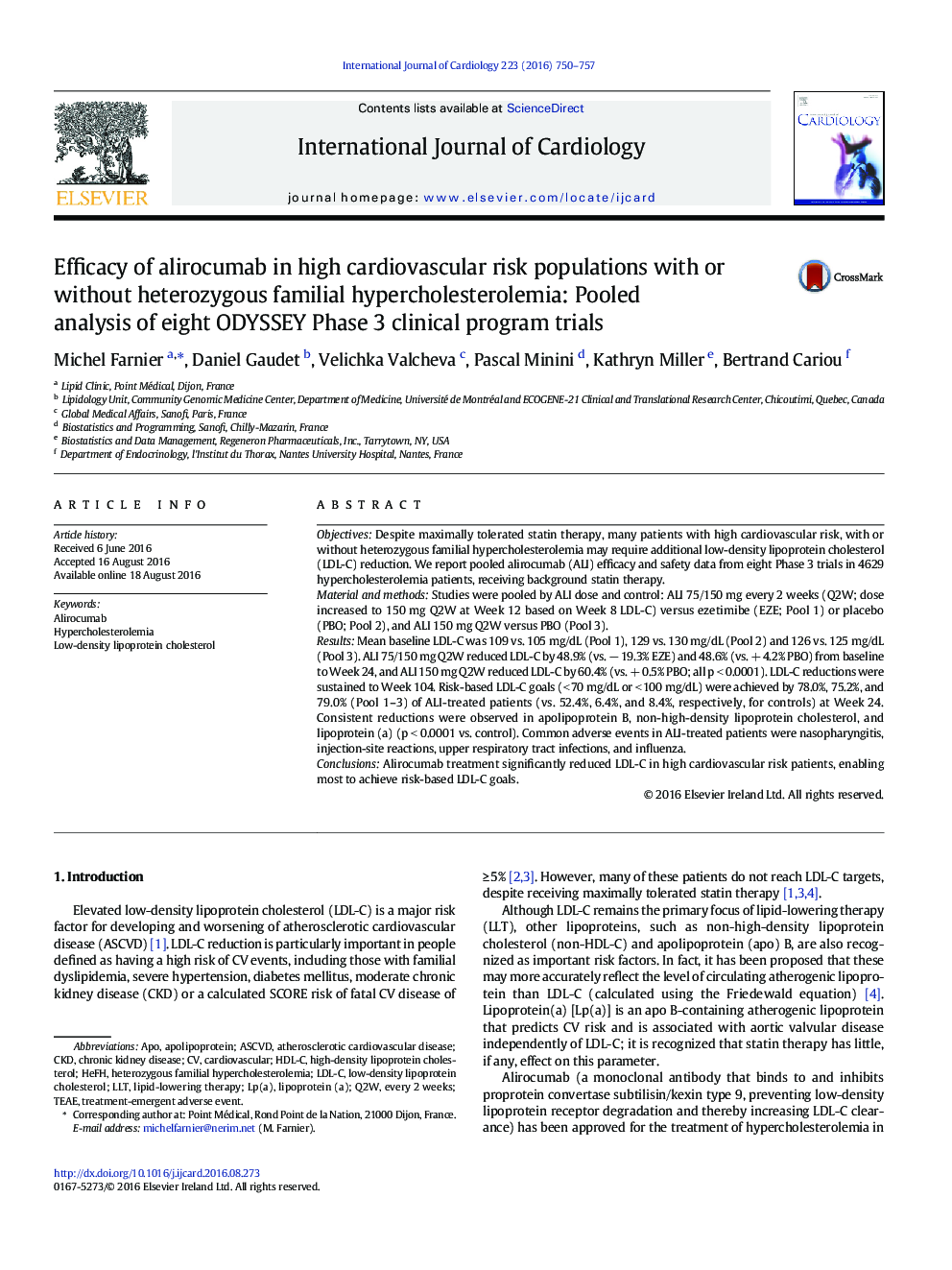| کد مقاله | کد نشریه | سال انتشار | مقاله انگلیسی | نسخه تمام متن |
|---|---|---|---|---|
| 5963264 | 1576125 | 2016 | 8 صفحه PDF | دانلود رایگان |

- Data pooled from 8 Phase III trials showed alirocumab significantly reduced LDL-C.
- Alirocumab reduced LDL-C by up to 60% and up to 79% of patients reached LDL-C goals.
- Alirocumab significantly improved ApoB, non-HDL-C and Lp(a) and was well tolerated.
- Alirocumab treatment may be of particular benefit in high-risk populations.
ObjectivesDespite maximally tolerated statin therapy, many patients with high cardiovascular risk, with or without heterozygous familial hypercholesterolemia may require additional low-density lipoprotein cholesterol (LDL-C) reduction. We report pooled alirocumab (ALI) efficacy and safety data from eight Phase 3 trials in 4629 hypercholesterolemia patients, receiving background statin therapy.Material and methodsStudies were pooled by ALI dose and control: ALI 75/150 mg every 2 weeks (Q2W; dose increased to 150 mg Q2W at Week 12 based on Week 8 LDL-C) versus ezetimibe (EZE; Pool 1) or placebo (PBO; Pool 2), and ALI 150 mg Q2W versus PBO (Pool 3).ResultsMean baseline LDL-C was 109 vs. 105 mg/dL (Pool 1), 129 vs. 130 mg/dL (Pool 2) and 126 vs. 125 mg/dL (Pool 3). ALI 75/150 mg Q2W reduced LDL-C by 48.9% (vs. â 19.3% EZE) and 48.6% (vs. + 4.2% PBO) from baseline to Week 24, and ALI 150 mg Q2W reduced LDL-C by 60.4% (vs. + 0.5% PBO; all p < 0.0001). LDL-C reductions were sustained to Week 104. Risk-based LDL-C goals (< 70 mg/dL or < 100 mg/dL) were achieved by 78.0%, 75.2%, and 79.0% (Pool 1-3) of ALI-treated patients (vs. 52.4%, 6.4%, and 8.4%, respectively, for controls) at Week 24. Consistent reductions were observed in apolipoprotein B, non-high-density lipoprotein cholesterol, and lipoprotein (a) (p < 0.0001 vs. control). Common adverse events in ALI-treated patients were nasopharyngitis, injection-site reactions, upper respiratory tract infections, and influenza.ConclusionsAlirocumab treatment significantly reduced LDL-C in high cardiovascular risk patients, enabling most to achieve risk-based LDL-C goals.
Journal: International Journal of Cardiology - Volume 223, 15 November 2016, Pages 750-757